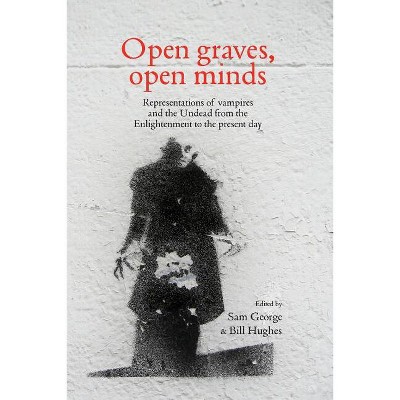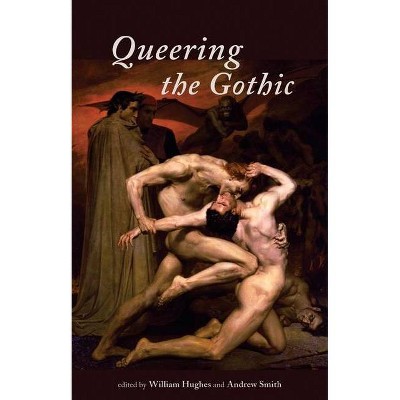Sponsored

The Legacy of John Polidori - by Sam George & Bill Hughes (Hardcover)
In Stock
Sponsored
About this item
Highlights
- John Polidori's novella The Vampyre (1819) is perhaps 'the most influential horror story of all time' (Frayling).
- About the Author: Sam George is Associate Professor of Research at the University of Hertfordshire and Co-convenor of the Open Graves, Open Minds ProjectBill Hughes is Co-convenor of the Open Graves, Open Minds Project
- 336 Pages
- Literary Criticism, European
Description
About the Book
This collection explores the genesis of John Polidori's foundational novella The Vampyre (1819). It then tracks his bloodsucking progeny across the centuries and maps his disquieting legacy from the melodramatic vampire theatricals in the 1820s, through further Gothic fictions and horror films, to twenty-first century paranormal romance.Book Synopsis
John Polidori's novella The Vampyre (1819) is perhaps 'the most influential horror story of all time' (Frayling). Polidori's story transformed the shambling, mindless monster of folklore into a sophisticated, seductive aristocrat that stalked London society rather than being confined to the hinterlands of Eastern Europe. Polidori's Lord Ruthven was thus the ancestor of the vampire as we know it. This collection explores the genesis of Polidori's vampire. It then tracks his bloodsucking progeny across the centuries and maps his disquieting legacy. Texts discussed range from the Romantic period, including the fascinating and little-known The Black Vampyre (1819), through the melodramatic vampire theatricals in the 1820s, to contemporary vampire film, paranormal romance, and science fiction. The essays emphasise the background of colonial revolution and racial oppression in the early nineteenth century and the cultural shifts of postmodernity.From the Back Cover
John Polidori is the least regarded figure in the history of literary vampirism and yet his influential novella The Vampyre (1819) is perhaps 'the most influential horror story of all time' (Frayling). Surprisingly, it has never before been the subject of a book-length critical study. Polidori's story transformed the shambling, mindless monster of folklore into a sophisticated, seductive aristocrat that stalked London society rather than being confined to the hinterlands of Eastern Europe.
This collection explores the genesis of Polidori's vampire. It then tracks his bloodsucking progeny across the centuries and maps his disquieting legacy from the melodramatic vampire theatricals in the 1820s, through further Gothic fictions and horror films, to twenty-first-century paranormal romance. It includes a critique of the fascinating and little-known The Black Vampyre (1819) - a text inspired by Polidori and the first Black vampire in fiction. Leading and emerging scholars of the vampire and Gothic provide innovative analyses of the variations on monstrosity and deadly allure spawned by Polidori's revenant. The collection advances from the ground-breaking research of Open Graves, Open Minds: Representations of Vampires and the Undead from the Enlightenment to the Present Day. Appended is an annotated edition of the text of The Vampyre and supplementary material. Polidori died a suspected suicide aged 25; he has been sorely neglected. This stimulating collection makes a coherent case for the importance of John Polidori's tale and redeeming 'poor Polidori'.About the Author
Sam George is Associate Professor of Research at the University of Hertfordshire and Co-convenor of the Open Graves, Open Minds Project
Bill Hughes is Co-convenor of the Open Graves, Open Minds Project
Shipping details
Return details
Trending Poetry











